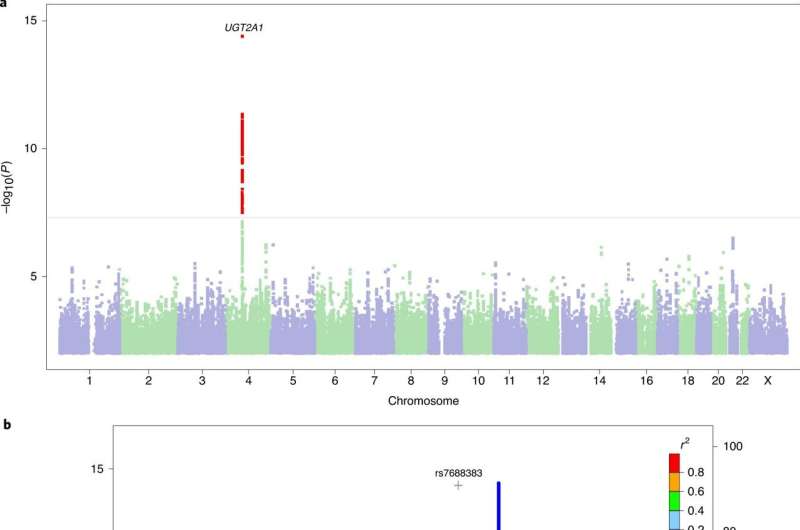January 18, 2022 report
People with certain genetic loci are 11% more likely to lose the ability to smell or taste from COVID

A team of researchers at genomics and biotechnology company 23andMe have found that people with a certain genetic locus are 11% more likely to lose the ability to smell or taste due to a COVID-19 infection. In their paper published in the journal Nature Genetics, the group describes studying the genomes of 70,000 adults from the U.S. and the U.K., looking for genes associated with taste and smell loss during COVID-19 infections.
From the beginning of the pandemic, doctors have reported patients experiencing COVID-19–related loss of smell and/or taste, but it became clear that only some infected people experienced these symptoms. In this new effort, the researchers wanted to know why, and to find out they looked at data accumulated over the course of the pandemic from multiple research efforts. In all, they used data from more than 1 million research participants who had self-described their COVID-19 symptoms in studies. The researchers focused their attention on those participants who reported a loss of smell or taste, which narrowed their list of individuals to 68,841.
The team then compared parts of the genome known to be associated with taste and smell in those who had lost these senses against the genomes of non-infected people. They found a region in chromosome 4 located near two gene variants, UGT2A1 and UGT2A2, both previously linked with smell and also in metabolizing odorants. Furthermore, people in the study with the variant genes were 11% more likely to experience loss of smell or taste. It is still not known, however, how the SARS-CoV-2 virus interacts with the enzymes that are associated with the two genes. Prior research has shown that the virus infects sustentacular cells, which play a role in processing odors in the air. Thus, the next step for the researchers will be looking at differences in the enzymes produced by people with the genetic variants to see how they interact with such cells, both under normal conditions and when infected with COVID-19.
More information: Janie F. Shelton et al, The UGT2A1/UGT2A2 locus is associated with COVID-19-related loss of smell or taste, Nature Genetics (2022). DOI: 10.1038/s41588-021-00986-w
© 2022 Science X Network




















